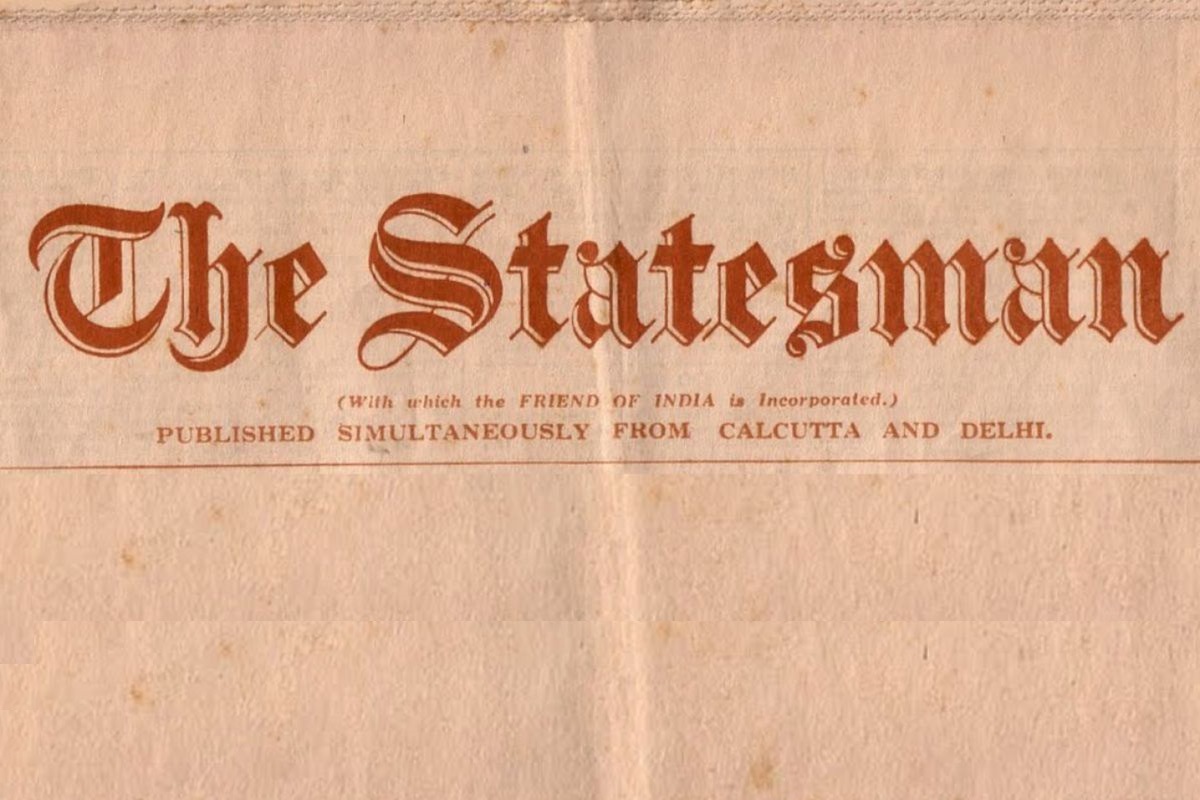A HAPPY JOURNEY
This evening it was about honoring those who made it possible for the oldest English daily to host its most prized annual celebration of heritage, the Vintage Car Rally, which enters its 53rd year this year.
On this day a century ago, these were some of the news items The Statesman readers got to read about India and the world.

OCCASIONAL NOTE
Apparently the Commander-in-Chief is determined to have the blood of a commanding officer who wrote recently to the Pioneer protesting against interruption of his heavy demobilisation duties by “a continual round of inspecting officers” who follow one another “with lightning rapidity” to inspect troops which will be discharged before many weeks are over. If, as is suggested, every commanding officer in the division is to be put on his honour to say whether or not he wrote the letter, the public will share our contemporary’s view that the procedure is a grave breach of the old English rule of fair play. In any case, the C.O. who wrote the letter will have the sympathy of every member of the Defence Force in Calcutta. Even in war-time the inspection business was much overdone. Inspecting officers were always late to their work and everybody’s convenience was consulted on these occasions except that of the troop, generally several hundred in number, who had to stand in the sun to await the pleasure of the inspecting party. One of the worst abuses of the system was the practice of marching the evening guard parties composed of a score of men – who had done an eight hours day in an office and were bound for twenty-four hours’ guard duty at the docks – from their parade ground into Fort William for inspection there, by an officer who generally arrived half an hour late and, in the cold weather, did his “work” as often as not in the dark.
BURGLARY AT STATION BOOKSTALL
Advertisement
Messrs. Wheeler and Co.’s bookstall at Howrah Station is reported to have been burgled on Friday night a few minutes before the departure of the Punjab Mail and a bag containing Rs 420 in cash and Rs 80 in notes stolen. The stall-keeper’s statement is that he had left the stall for the platform a few minutes before the burglary was committed, leaving his assistant in charge. The assistant also left the stall in quest of him at the request of two Bengali babus. On his return he found that the lock of the drawer containing the bag had been forced open and the money gone. He ran after the babus but was told that they had made off in a taxi. The stall-keeper further produced an anonymous letter stating that the writer had heard while in the Presidency Jail that a large sum of money was kept in the stall and that he would loot it some day. A police inquiry is proceeding.
THE MODERN TEACHER’S TASK
MADRAS, MAR 15
In opening the Educational Conference held under the auspices of the Madras Teachers’ Guild today, H.E. the Governor said that the danger which attended the elaboration of educational technique could be avoided by constant regard to the ideals of education. The complexity of modern life had made the task of the teacher infinitely more difficult. The demands upon his resolut ion, his resourcefulness and power of adaptation were indeed great, and an association of this kind could render valuable service in helping him to meet them.
DEVKUMAR DACOITY CASE
Mr. Kingsford, District and Sessions Judge, Cuttack, recently disposed of the trial of the second batch of accused in the Devkumar dacoity case, in which the first batch of accused, including the president of the Panchayat, Baikuntha Nath Ghosh, and his brother Jatindra Nath Ghosh, were convicted and sentenced to various terms of rigorous imprisonment for having committed a dacoity in the house of a widow on the 14th May last under circumstances already reported. The Judge found all the four accused in the second batch guilty and sentenced them to eighteen months’ rigorous imprisonment and a fine of Rs 50 each, in default an additional six months’ rigorous imprisonment.
OUR DISABLED OFFICERS
DELHI, MAR 15
Field-Marshal Sir Douglas Haig has issued the following stirring appeal on behalf of our disabled officers:- To my brother officers of the British Armies, in the moment of success our thoughts naturally turn to those of our brave comrades who have fallen in the good fight or who have been disabled. The former are beyond all mortal aid. To the latter it is our duty and our privilege to stretch out the hand of help and sympathy. In our gratitude we must spare no effort to brighten their lives, to lighten their sufferings, and to comfort them in their irreparable loss, the loss of health and strength. In the autumn of 1915 some ladies in touch with the army recognised the need for giving prompt, and at the same time private, help, to disabled officers. The Disabled Officers’ Fund was accordingly started under the patronage of Their Majesties the King and Queen, the First Lord of the Admiralty, and the Secretary of State for War.
Advertisement